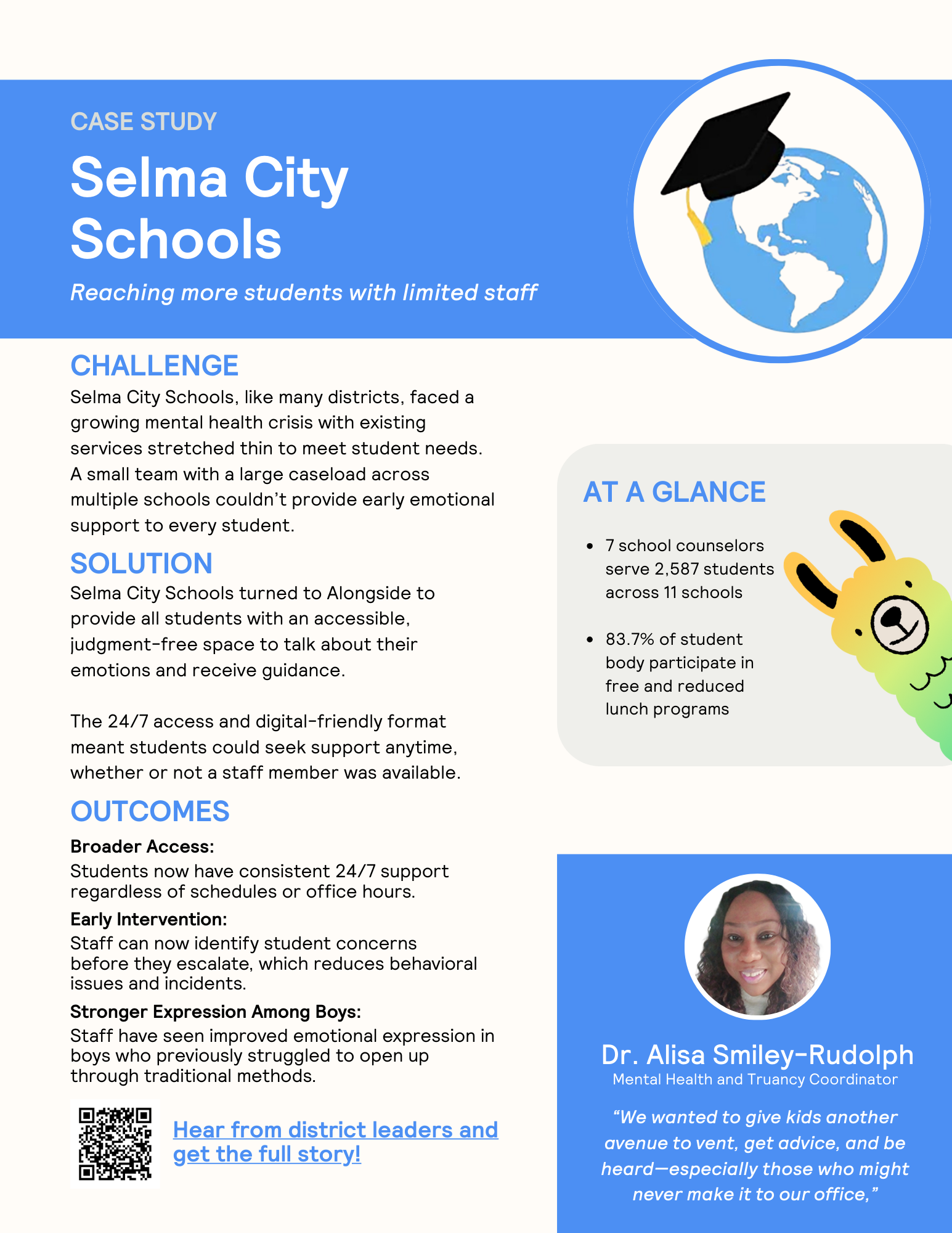
When Dr. Alisa Smiley, Mental Health and Truancy Coordinator at Selma City Schools, looked across her district, one thing was clear: too many students weren’t getting the mental health support they needed.
With just a few staff members sharing large caseloads and a school-based therapist splitting time between two districts, the team knew they needed a new approach.
“We wanted to make sure we were capturing as many kids as we could to decrease behavior issues,” Dr. Smiley explained. “Alongside gave students another avenue to vent, get advice, and be heard...especially those who might never make it to our office.”

Expanding Access and Relieving Staff Burden
Since launching Alongside, nearly 880 students, about 40% of the district’s enrollment, have used the platform. Advisory periods, encouraged by the district’s social-emotional learning director, became a dedicated time for students to check in with Alongside. That intentional push has lightened counselor caseloads and even helped identify students in crisis through real-time alerts.
For many students, the 24/7 access, including weekends, holidays, and summer, has been just as important. “Sometimes kids come in after a rough morning or weekend,” Dr. Smiley said. “They know they can log in before school or anytime during the day to process what they’re feeling.”
“That sense of safety makes them more willing to open up.” -- Dr. Alisa Smiley, Selma City Schools
Meeting Students Where They Are
Alongside’s tools, from mood check-ins and journaling to goal setting and “superpower” exercises, have resonated with students, especially at the elementary level. While some older students still prefer in-person conversations, 88 to 90% of students share that the platform is helpful overall.
Confidentiality has been key. “We remind them that unless it’s a crisis, we don’t have access to their chats,” Dr. Smiley noted. “That sense of safety makes them more willing to open up.”
One surprise outcome the district didn't anticipate: many boys who previously struggled with emotional expression have been more comfortable using Alongside as a starting point to explore their feelings. This has led to improved communication lines between staff and students, and positive impacts on student behavior, culture and climate.

A Game Changer for the District
Alongside has become a critical part of Selma City Schools’ trauma-informed practices and social-emotional learning strategy. It supports students in building coping skills, managing emotions, and addressing issues like bullying before they escalate.
“It’s been a game changer,” Dr. Smiley said. “Our students know they have access to support whenever they need it, and that’s priceless.”



